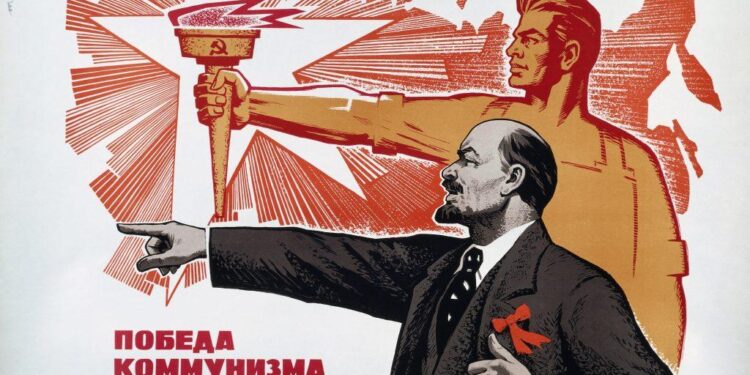The Czech Republic has taken a decisive step by outlawing communist propaganda, igniting debates over political motivations and free speech. The new legislation prohibits the public display of symbols and slogans associated with the former communist regime, which ruled the country for over four decades. Supporters argue the move is necessary to confront a painful past and safeguard democratic values, while critics warn it may be a political ploy aimed at exploiting historical grievances amid contemporary partisan struggles. This development highlights the ongoing tensions in Central Europe over how nations reckon with their authoritarian legacies.
Czech Republic Moves to Ban Communist Propaganda Amid Growing Political Tensions
In a decisive move stirring controversy, Czech lawmakers have enacted legislation outlawing the dissemination of communist propaganda. Officials argue the measure is necessary to curtail the revival of ideologies linked to historical oppression, yet critics warn it may be a strategic attempt to quash dissent amid escalating political rivalries. The ban targets symbols, slogans, and public displays associated with the former regime, raising questions about where the line is drawn between safeguarding democracy and infringing on freedom of expression.
The legislation’s critics highlight several concerns, including:
- Potential politicization: Observers note the timing corresponds with growing electoral competition and rising support for leftist groups.
- Ambiguity in enforcement: Vague definitions could lead to inconsistent application and legal challenges.
- Impact on historical discourse: Restrictions may stifle academic and cultural discussions essential for understanding the past.
| Aspect | Supporters’ View | Critics’ Concern |
|---|---|---|
| Purpose | Protect democracy against past totalitarian threats | Suppress political opposition |
| Scope | Prohibits public promotion of communist symbols | Too broad; risks limiting free speech |
| Enforcement | Legal penalties for violations | Potential misuse by authorities |
Legal Experts Weigh Implications for Freedom of Speech and Historical Discourse
Legal scholars are divided on the Czech Republic’s recent legislation banning communist propaganda, raising critical questions about the balance between safeguarding democratic values and protecting freedom of expression. Proponents argue the law is necessary to prevent the resurgence of totalitarian ideologies that inflicted decades of repression on the country. Critics, however, caution that such measures risk encroaching on civil liberties by criminalizing historical narratives that some view as part of broader social discourse. The tension highlights a delicate intersection where legal boundaries meet ethical considerations in shaping public memory.
Discussion points from top legal experts include:
- Freedom of Expression: How far can a state go in restricting speech without violating constitutional protections?
- Historical Context: Should propaganda from past regimes be treated as criminal or examined within academic frameworks?
- Enforcement Challenges: The practical implications of policing ideological content and defining “propaganda.”
| Legal Aspect | Potential Impact | Expert Consensus |
|---|---|---|
| Freedom of Speech | Possible restrictions on dissenting opinions | Divided opinions |
| Historical Discourse | Risk of oversimplifying complex past | Calls for nuanced discussion |
| Judicial Enforcement | Challenges in legal interpretation | Need for clear guidelines |
Calls for Clear Guidelines to Distinguish Propaganda from Political Education
The recent legislation in the Czech Republic banning communist propaganda has ignited a robust debate about the essential criteria needed to differentiate propaganda from legitimate political education. Critics argue that while combating propaganda is crucial, the law risks oversimplifying complex historical narratives and potentially stifling academic freedom. Experts and civic groups alike have called for clearly defined and transparent guidelines that would help educators, policymakers, and the public navigate this delicate boundary without compromising democratic values.
Among the proposals is the development of a multi-dimensional framework emphasizing:
- Content context: Differentiating factual historical education from ideologically motivated messaging.
- Intent assessment: Evaluating the purpose behind political communication to distinguish education from manipulation.
- Source transparency: Ensuring the origin and funding of materials are openly disclosed to prevent covert propaganda.
- Public engagement: Encouraging open forums and critical discussions to foster informed citizenship rather than passive consumption.
| Criteria | Propaganda | Political Education |
|---|---|---|
| Purpose | Manipulate public opinion | Inform and educate |
| Transparency | Often concealed | Explicit and clear |
| Content | Selective facts, emotive appeals | Balanced, evidence-based |
| Engagement | One-way communication | Interactive, dialogical |
In Retrospect
The Czech Republic’s decision to outlaw communist propaganda marks a significant moment in its ongoing effort to grapple with its historical legacy. While proponents argue the move is a necessary step to prevent the resurgence of totalitarian ideologies, critics caution against potential political motivations behind the timing and enforcement of the law. As the nation navigates this contentious terrain, the broader implications for freedom of expression and political discourse in post-communist Europe remain closely watched.
















